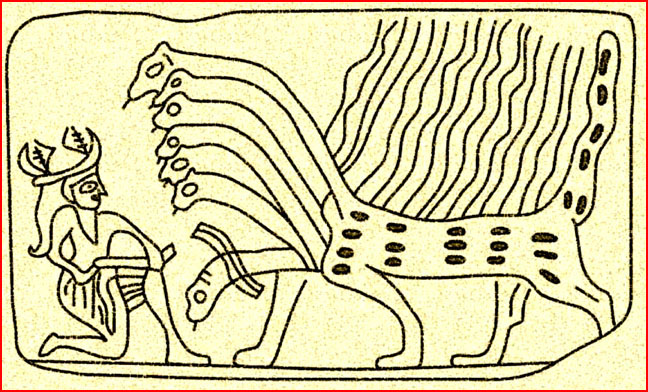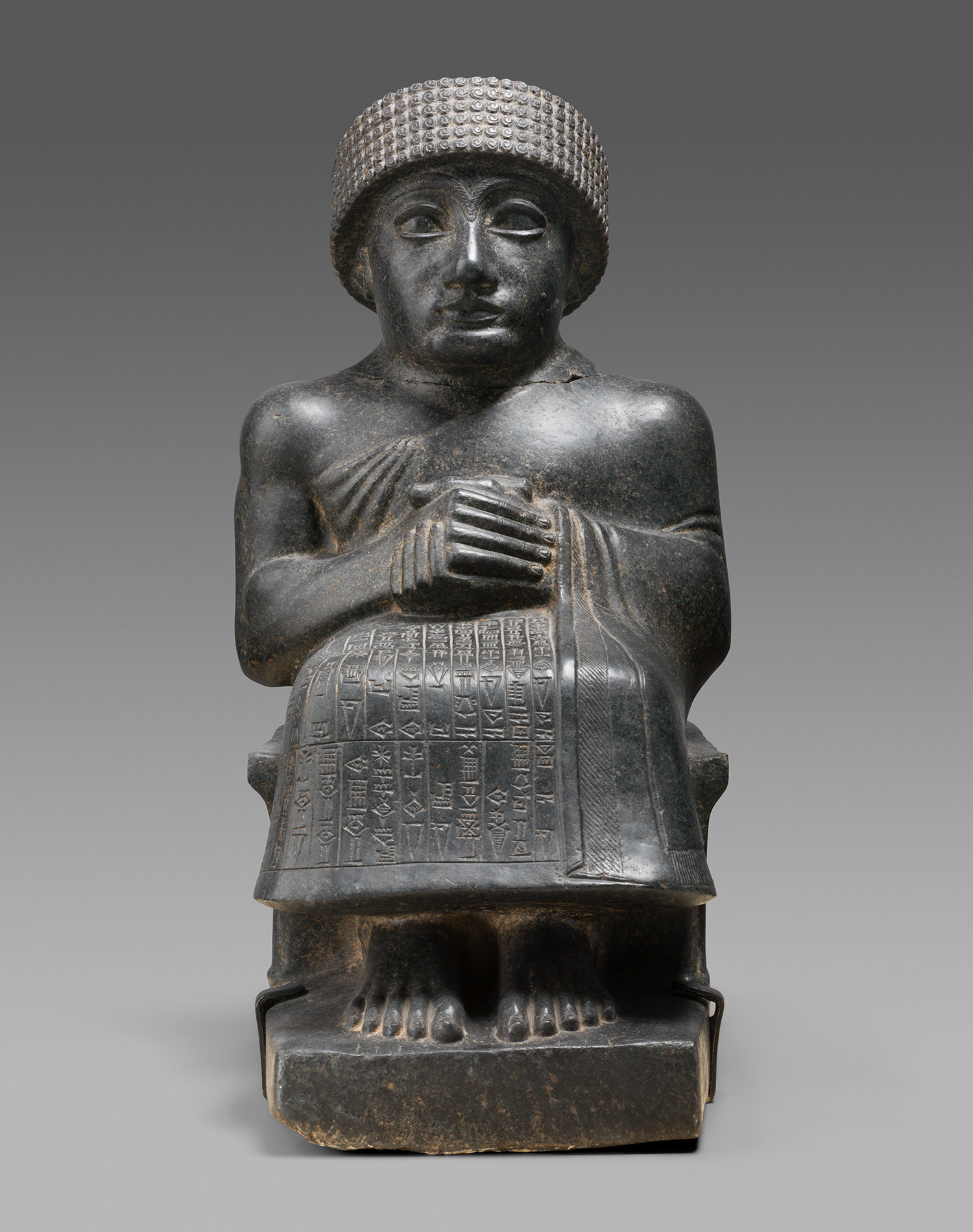Compare:
Prometheus and Pandora Chapter II
From Thomas Bulfinch (1796-1867). Age of Fable: Vols. I & II: Stories of Gods and Heroes. 1913.
http://ancienthistory.about.com/library ... inch_2.htmJupiter, seeing this state of things, burned with anger. He summoned the gods to council. They obeyed the call, and took the road to the palace of heaven. The road, which any one may see in a clear night, stretches across the face of the sky, and is called the Milky Way. Along the road stand the palaces of the illustrious gods; the common people of the skies live apart, on either side. Jupiter addressed the assembly. He set forth the frightful condition of things on the earth, and closed by announcing his intention to destroy the whole of its inhabitants, and provide a new race, unlike the first, who would be more worthy of life, and much better worshippers of the gods. So saying he took a thunderbolt, and was about to launch it at the world, and destroy it by burning; but recollecting the danger that such a conflagration might set heaven itself on fire, he changed his plan, and resolved to drown it. The north wind, which scatters the clouds, was chained up; the south was sent out, and soon covered all the face of heaven with a cloak of pitchy darkness. The clouds, driven together, resound with a crash; torrents of rain fall; the crops are laid low; the year's labour of the husbandman perishes in an hour. Jupiter, not satisfied with his own waters, calls on his brother Neptune to aid him with his. He lets loose the rivers, and pours them over the land. At the same time, he heaves the land with an earthquake, and brings in the reflux of the ocean over the shores. Flocks, herds, men, and houses are swept away, and temples, with their sacred enclosures, profaned. If any edifice remained standing, it was overwhelmed, and its turrets lay hid beneath the waves. Now all was sea, sea without shore. Here and there an individual remained on a projecting hilltop, and a few, in boats, pulled the oar where they had lately driven the plough. The fishes swim among the tree-tops; the anchor is let down into a garden. Where the graceful lambs played but now. unwieldy sea calves gambol. The wolf swims among the sheep, the yellow lions and tigers struggle in the water. The strength of the wild boar serves him not, nor his swiftness the stag. The birds fall with weary win, into the water, having found no land for a resting-place. Those living beings whom the water spared fell a prey to hunger.
Parnassus alone, of all the mountains, overtopped the waves; and there Deucalion, and his wife Pyrrha, of the race of Prometheus,… “
~Side Note: Deucalion and Pryrra were half-brother and sister, as well as spouses.
Other globalcatastrophe anecdotes ~may~ be found in these legends:
Babylonian epic of Gilgamesh, Azetc story of Coxcoxtli and Xochiquetzal, Greek tales of the Titans battles with the Olympians- plus Phaeton and Helios, the previously cited Norse myth of Ragnarok, Sumerian Ninurta or Ishkur or later Marduk's battles against Tiamat and Anzu, Feridun and Zohak from Persia and, of course, the periodic episodes of carnage and chaos in Vedic myth ( GC, you no doubt know these much better than i do)
http://www.perseus.tufts.edu/cgi-bin/vo ... ollection=
"Myths from Mesopotamia" Stephanie Dalley
"The Sumerians, ...." S.N. Kramer
"Gods of the Maya, Aztecs, and Inca" T. R. Roberts
"The Great Year in Greek, Persian and Hindu astronomy" B. L. van der Waerden
~






